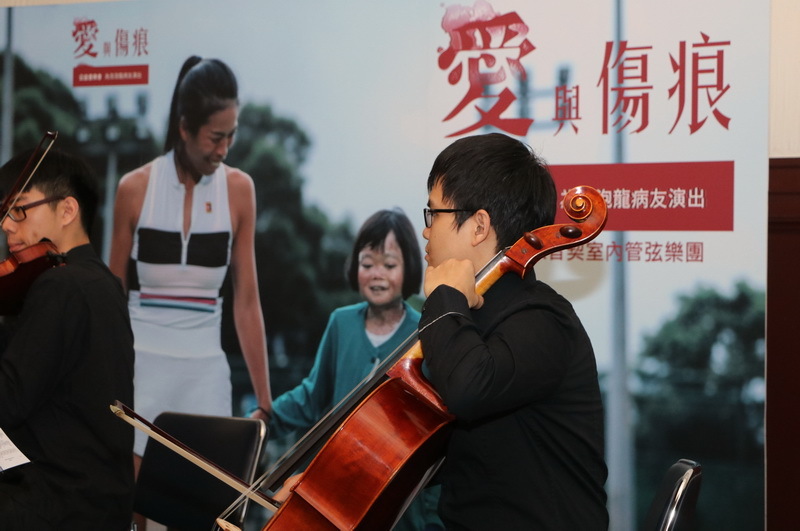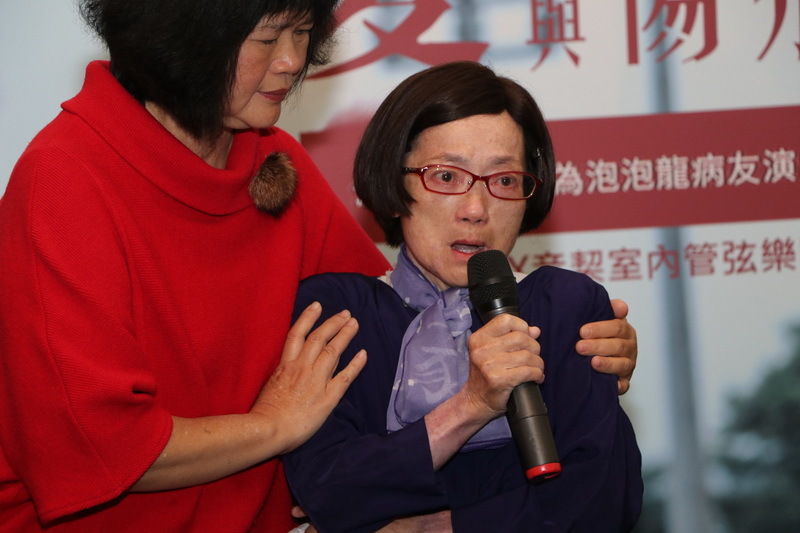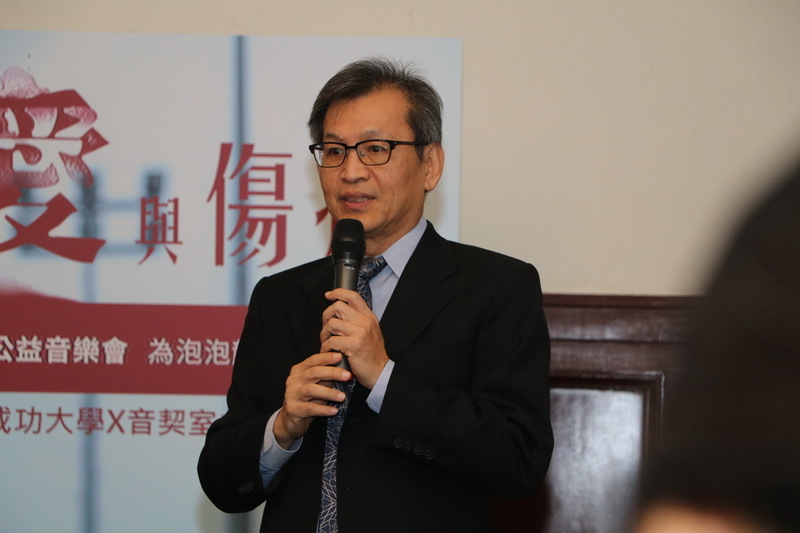NCKU Holds Benefit Concert for Sufferers of Epidermolysis Bullosa
Epidermolysis Bullosa is a rare genetic condition that causes skin diseases and ulcerations. Those who have this condition are bound to a life of perpetual open wounds and endless amounts of gauze. NCKU has been a long-time investor in the research and development of the condition and its treatments. In order to bring more awareness to the condition, NCKU held a benefit concert in January 2020. Even international professional tennis player Hsieh Su-wei , who normally does not engage in celebrity endorsement activities, shot a charity commercial as a way to support the cause. NCKU hopes that through these efforts more people can come to learn about those suffering from epidermolysis bullosa.

NCKU Holds Benefit Concert for Sufferers of Epidermolysis Bullosa
The “Love and Scars” benefit concert was held on January 3rd and 5th in National Taichung Theater and National Kaohsiung Center for the Arts – Weiwuying, respectively. All proceeds from the concerts were donated to the Taiwan Epidermolysis Bullosa Patient Association. Through the multiple mediums of storytelling and music, NCKU hoped that music aficionados would share the love they have more music with those affected by epidermolysis bullosa.
Ms. Li, an epidermolysis bullosa patient, explained that sufferers develop blisters on the skin with even the slightest of abrasions. Once the blister bursts, it turns into a damp ulcer. This happens many times. The wound is painful, itchy, and can bleed from excessive scratching. These blisters can also appear in the mouth cavity which would inhibit swallowing and lead to malnutrition. The body’s internal mucous membrane linings could also be damaged and negatively affect the immune system as a result. In addition to tangible wounds, sufferers of epidermolysis bullosa are often susceptible to unwanted stares and verbal harassment. Living with this condition since childhood, Ms. Li assured that growing up there was no shortage of these. She pointed out that sufferers do not need your pity or sympathy but rather your genuine concern for their well-being.

Ms. Li, an epidermolysis bullosa patient, explained that sufferers develop blisters on the skin with even the slightest of abrasions
The chairman of the NCKU International Center for Wound Repair and Regeneration Ming-Jer Tang expressed that epidermolysis bullosa is more commonly known as a genetic skin condition causing blisters on the surface of skin. One in five people suffer from epidermolysis bullosa. In Taichung, there are only 100 or so of these patients which makes them one of the most disadvantaged groups in society.
The patient’s epidermis on their skin, inside their mouth cavity or digestive tract are abnormally fragile. Any abrasion, no matter how light, will cause the epidermis to form blisters and open wounds. More severe sufferers are susceptible to skin cancer as adults. Sufferers have to spend countless hours dressing their wounds every day. Special wound dressings are costly and economically burdensome to sufferers, driving them to resort to home remedies which only exacerbate their condition.

The chairman of the NCKU International Center for Wound Repair and Regeneration Ming-Jer Tang
Modern medicine currently does not yet have any method of fully curing epidermolysis bullosa. NCKU’s medical research team is working in tandem with international research efforts to investigate the gene that causes this condition in hopes of better understanding how to diagnose and treat epidermolysis bullosa. Moreover, the collaboration endeavors to create a genetic database and consultations as a base for preventative measures in parallel with strengthening care training and social support systems.